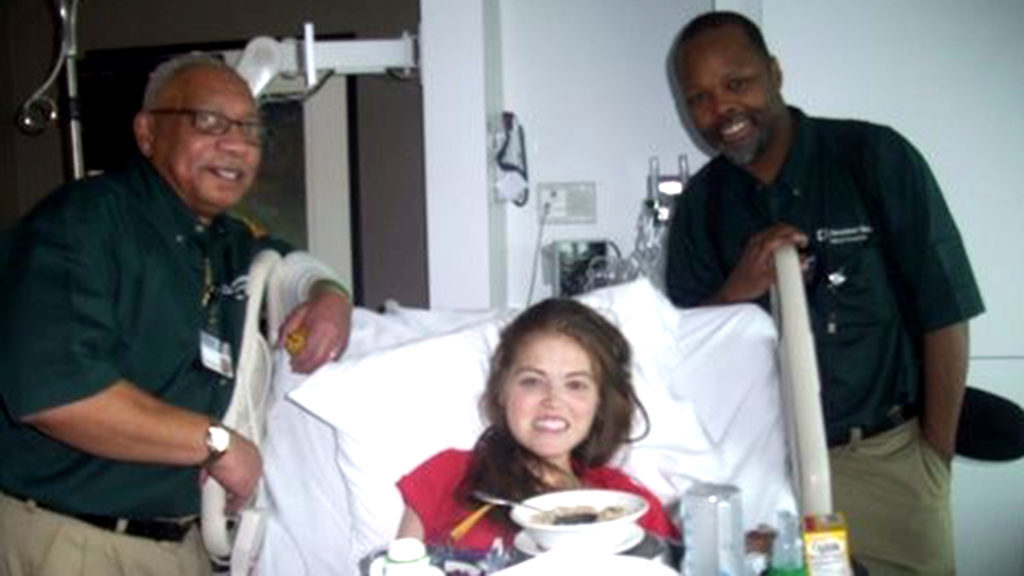
“Among the calamities of war, may be justly numbered the diminution of the love of truth, by the falsehoods which interest dictates, and credulity encourages.”
Samuel Johnson, The Idler (November 11, 1758)
Terry Teachout on the arts in New York City

“Among the calamities of war, may be justly numbered the diminution of the love of truth, by the falsehoods which interest dictates, and credulity encourages.”
Samuel Johnson, The Idler (November 11, 1758)

John Lennon and Chuck Berry perform “Memphis, Tennessee” and “Johnny B. Goode” and are interviewed on a 1972 episode of The Mike Douglas Show:
(This is the latest in a series of arts- and history-related videos that appear in this space each Monday, Wednesday, and Friday)

“There are two ways to slide easily through life: to believe everything or to doubt everything; both ways save us from thinking.”
Alfred Korzybski, Manhood of Humanity

I vaguely recalled having read about her horrific experiences, but knew nothing of the details. Now I know all about them, and I find myself in awe of her, not just because of her indomitable determination but because it turns out that in addition to being an excellent singer, Ms. Tillemann-Dick is also a very fine writer. “The Encore” is one of the best books I’ve ever read about the effects of chronic illness on the human spirit. Most of us, I suspect, like to think that we’d rise to a difficult occasion if forced to do so, but rarely are we put to the test. Ms. Tillemann-Dick was, and she faced it with a courage that I can scarcely begin to fathom.
Ms. Tillemann-Dick was diagnosed in 2004 with pulmonary hypertension, an extremely rare and devastating disease of the lungs. A 20-year-old music student, she’d set her sights on an operatic career, and she had every reason to believe that her dream would come true. Instead, her doctor told her to stop singing at once, warning her that “those high notes are going to kill you.” PH, as it’s known to those who have it, is debilitating, incurable and, if left untreated, fatal. But she refused to give up, telling herself, “I just want to live—really live—for as long as I have left.”
A second, more enlightened specialist encouraged her to keep on singing, and she continued to study and perform for as long as her waning health permitted. Palliative treatments kept her going until 2009, when it finally became clear—as is always the case with end-stage PH—that the only thing that would save her life was a double-lung transplant. Fortunately, she survived the painful operation, and to the amazement of her doctors, she started singing in public again a year later, something that no one but Mrs. Tillemann-Dick had thought possible….
Our hearts go out to Yonatan Doran, Charity’s husband. May he find comfort in the knowledge that her life was a blessing and an inspiration.
One last thing: if you haven’t signed up to be an organ donor, please do so now, and encourage your friends to do likewise. Charity’s life was lengthened to noble effect because two people who never knew her did so.
* * *
A 2011 TED talk by Charity Tillemann-Dick:

From 2009:
Read the whole thing here.One of my closest friends, a writer whom I admire greatly, has dedicated his latest book to me. I was one of the first people to suggest that he write it, and he claims to have profited from my counsel and encouragement. That’s nice to know–especially since the finished product turned out to be a first-rate piece of work. (I suppose it would feel uncomfortable to be the dedicatee of a piece of junk!) I received a copy of the uncorrected proofs in the mail the other day, and it was a decidedly strange experience to see “For TERRY TEACHOUT” printed on the fifth page. I’ve been written about in a couple of memoirs and mentioned in passing in a half-dozen other volumes of various kinds, but never before have I been the dedicatee of a book….

“To modern educated people, it seems obvious that matters of fact are to be ascertained by observation, not by consulting ancient authorities. But this is an entirely modern conception, which hardly existed before the seventeenth century. Aristotle maintained that women have fewer teeth than men; although he was twice married, it never occurred to him to verify this statement by examining his wives’ mouths.”
Bertrand Russell, The Impact of Science on Society

Patricia McBride and John Clifford dance George Balanchine’s Tarantella, set to the music of Louis Moreau Gottschalk, in an undated telecast:
(This is the latest in a series of arts- and history-related videos that appear in this space each Monday, Wednesday, and Friday)

“Power always thinks it has a great soul and vast views, beyond the comprehension of the weak.”
John Adams, letter to Thomas Jefferson (February 2, 1816)
| M | T | W | T | F | S | S |
|---|---|---|---|---|---|---|
| 1 | 2 | 3 | 4 | 5 | ||
| 6 | 7 | 8 | 9 | 10 | 11 | 12 |
| 13 | 14 | 15 | 16 | 17 | 18 | 19 |
| 20 | 21 | 22 | 23 | 24 | 25 | 26 |
| 27 | 28 | 29 | 30 | 31 | ||
An ArtsJournal Blog